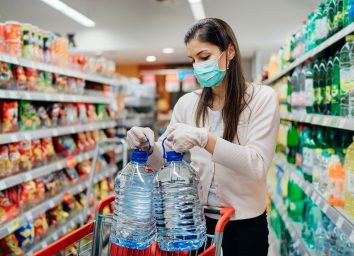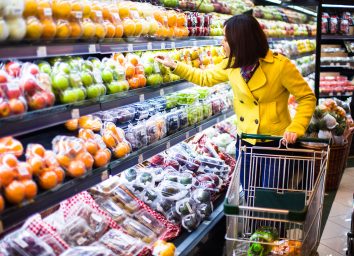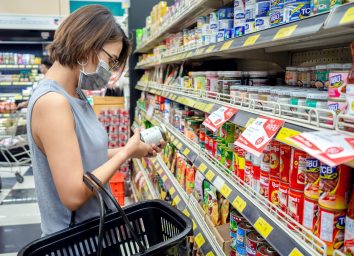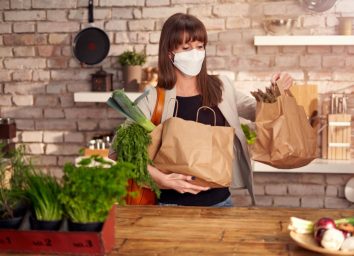Disinfecting Food This Way Could Actually Poison You, CDC Warns
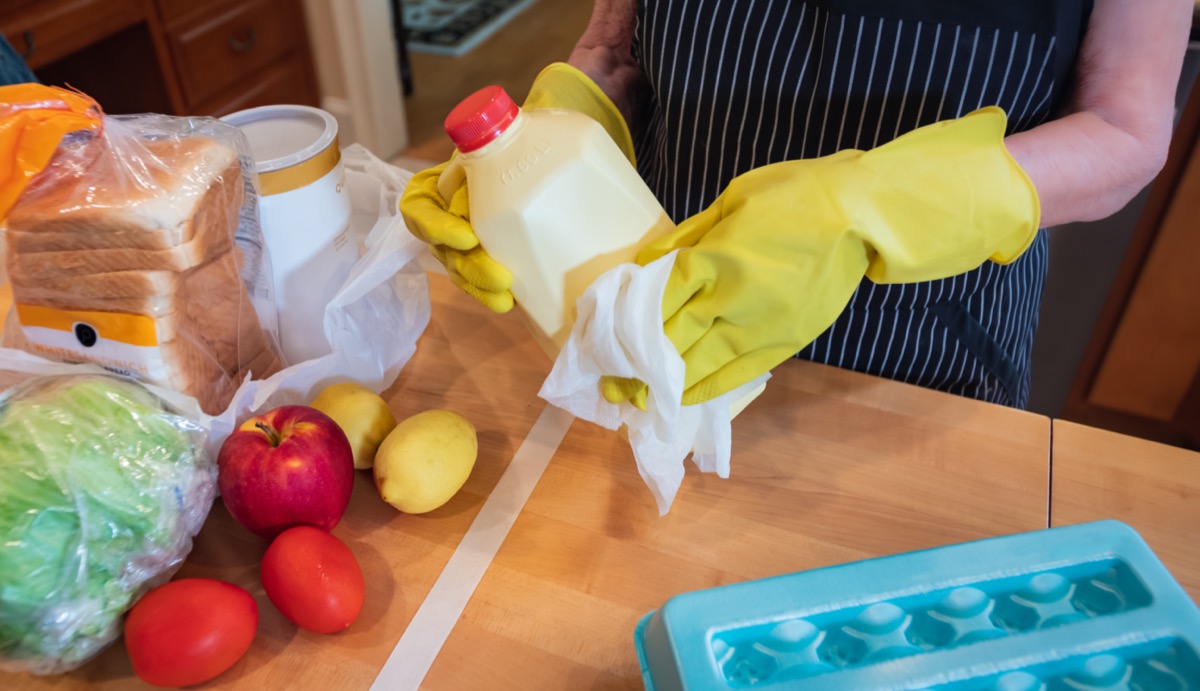
Last month, the CDC had surveyed Americans about cleaning behaviors and know-how related to coronavirus prevention, and the results may shock you. The agency released their findings from a survey taken by over 500 participants, a sample that represented the U.S. population by gender, age, region, race/ethnicity, and education. The study was done, in part, to asses the cause of an increase in calls to poison centers, and participants were asked questions about “general knowledge, attitudes, and practices related to use of household cleaners and disinfectants,” the report states.
The biggest finding was that 39 percent of people reported using common household cleaners, like bleach, in non-recommended ways that are actually really harmful to their health.
Majority reported an increased frequency of cleaning at home, which is great, but some of the cleaning behaviors reported are ill-advised and downright dangerous. These include applying bleach and other household disinfectants to hands (reported by 18%) and body (10%), inhaling their vapors (6%), and downright gargling or drinking solutions with bleach (4%). Yikes!
Another shocking finding showed that 19% of those surveyed said that they have also applied bleach on their food, which CDC warns is extremely harmful to your health.
Bleach is extremely harmful if used incorrectly
Bleach is a chlorine-based corrosive substance. Chlorine is a chemical element that can be found as a liquid, gas, or solid, and is present in many household cleaning products. Cleaning your home surfaces with bleach while using the correct protective gear, like gloves and a mask, is a great way to get rid of pesky germs of all stripes. However, CDC warns that applying household cleaning products and disinfectants directly to skin, or ingesting them, poses a risk of severe tissue damage and corrosive injury, and should be strictly avoided.
Cleaning fruits and vegetables with bleach, even if you’re going to peel them later, can have you ingesting chlorine, since it can seep into your food even if you rinse or peel it.
The survey showed that 25% of participant experienced at least one adverse health effect that they believed was a side effect of using cleaners and disinfectants: nose or sinus irritation (11%); skin irritation (8%); eye irritation (8%); dizziness, lightheadedness, or headache (8%); upset stomach or nausea (6%); or breathing problems (6%).
No evidence of coronavirus infections through food
There is no need and no excuse to use harsh chemicals on your food. The CDC keeps emphasizing that there is currently no evidence to support transmission of coronavirus associated with food. They advise washing your hands before preparing or eating food, especially after coughing or sneezing.
You don’t need to employ new food-washing techniques because of coronavirus. Instead, stick to well-known food safety guidelines which should be followed regardless of the pandemic: rinse fruits and vegetables under clean, running water, and never rinse poultry or meat.
If you’re still concerned, cook the food that can be cooked to at least 167 degrees Fahrenheit, for a sustained amount of time.
If you must, disinfect the packaging
As we’ve reported in the past, CDC emphasizes that the number one most likely way you’ll get infected with coronavirus is through person-to-person contact. However, if you’re going to be wiping down your groceries, make sure you don’t apply household cleaners to food you’re actually going to consume. Get our guide on safely disinfecting your grocery haul.
